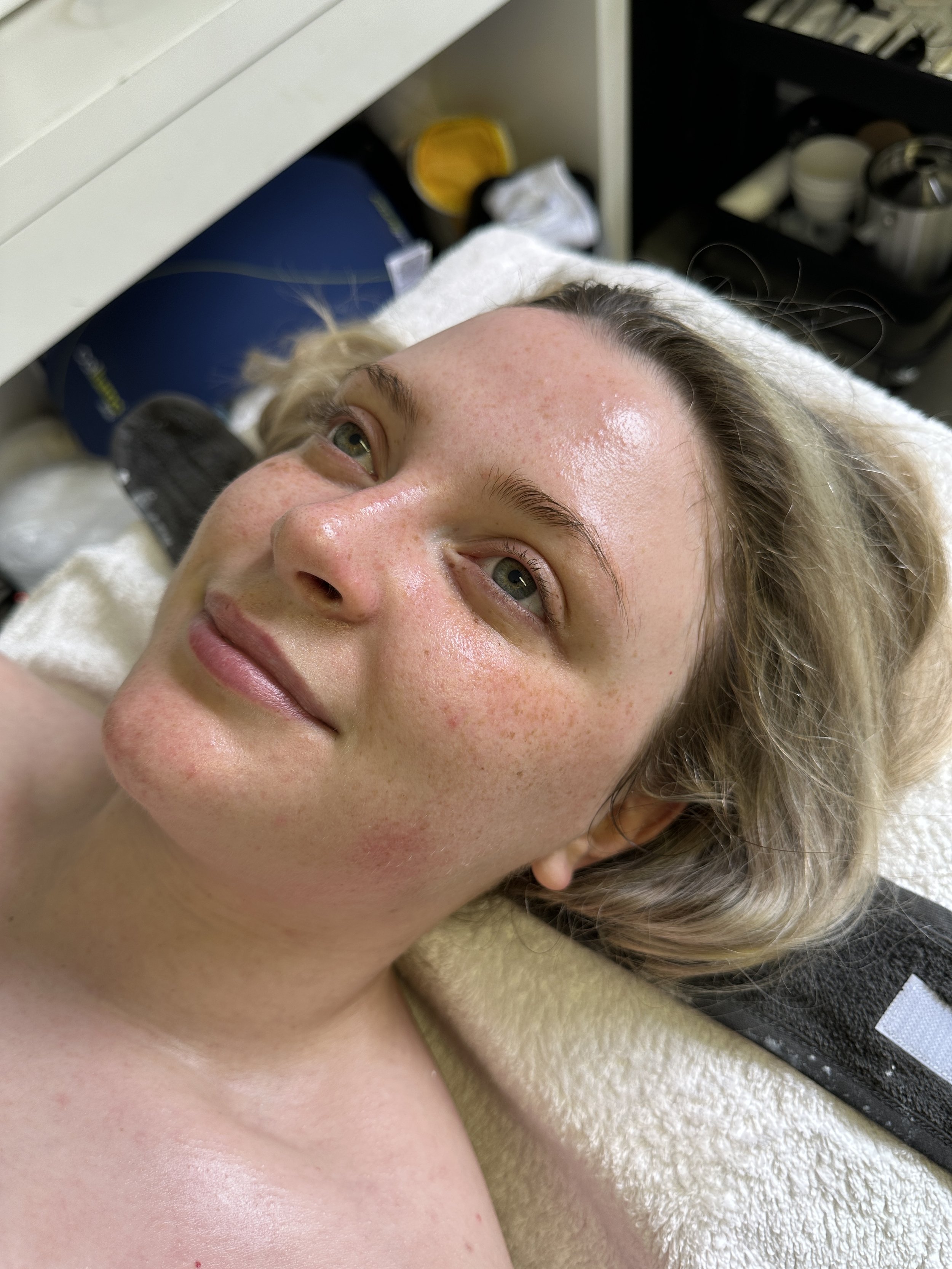The Best Beauty Supplements (According To Me)
Supplements are one of my most asked for - albeit confusing, mysterious, and subjective - product recommendations. Since we all have different natural levels of hormones and vitamins in our bodies, it’s highly personal and there is no one-size-fits-all quick fix magic pill for achieving better skin. What works for me might not work for you, which is why thorough research and some degree of self-experimentation is paramount (and as always, if you have any concerns or potential contraindications, speak to your GP before incorporating a new supplement into your routine). I’ve tried to keep the scope of this article to listing the specific benefits of each supplement and to limit the amount of anecdotal evidence I give, except to say that I have myself tried and seen benefits from all of the below products. These days there is a wealth of information at our fingertips and for every study that presents the benefits of a supplement there is another that contradicts it, so my approach to a supplement I am interested in is to just try it for myself and see what happens! I have not listed anything that I have either not tried or did not see benefits from. I also want to note that I do not take all of these supplements on a daily basis. I typically am taking a maximum of three at any one time and I try to ensure the ones I’m using give me a well-rounded approach.
Probiotics
Best for: Inflammatory skin conditions like acne, rosacea, eczema, or extreme dryness/sensitivity
Works well with: Ceramides
Don’t take it with: Antibiotics - they may cancel each other out
My recommendation: Gallinee Skin & Microbiome Supplement
Probiotics are traditionally taken for gut health, so if you’re wondering how they have any impact on skin, it’s because the gut and skin are closely linked by what’s known as the gut-skin axis. Inflammatory skin conditions like eczema, acne, and rosacea can flare up when your gut is off balance, and by restoring balance to the gut, probiotics help to reduce inflammation all over the body, including the skin. They can also help to normalise the balance of bacteria on the skin, supporting healthy bacteria and inhibiting product of P.acnes bacteria which causes acne, and help to strengthen skin’s natural moisture barrier which is vital for reducing sensitivity and defending against bacteria.
I’ve been taking probiotics for several years. I actually first started taking them after a course of probiotics triggered some extreme bloating but I found the benefits for my skin equally as impressive. Since they launched I’ve exclusively been using Gallinee’s offering - the brand champions probiotic formulas in all of its products and since they’re skin specialists their supplement is specifically formulated with skin in mind.
Vitamin D
Best for: Breakout prone skin
Works well with: Other antioxidants like vitamins A, C, and E
My recommendation: Beauty Pie Like Sun Vitamin D Supplement
Our skin naturally produces vitamin D when triggered by UV light, which makes it hard to say how much vitamin D a person needs since it’s dependent on many factors including skin colour, BMI, climate, and diet etc, as well as sun exposure. Symptoms of vitamin D deficiency include fatigue, muscle weakness, and low mood, but in terms of skin, vitamin D can be worth trying if you’re experiencing stubborn acne. Essentially, vitamin D is a hormone, so when it’s low it affects the balance of other hormones in the body. Typically, an imbalance of hormones means that testosterone becomes the more dominant hormone which leads to increased oil production and increased breakouts. Vitamin D also encourages the body to produce anti-inflammatories, which is beneficial since acne is an inflammatory condition (it can also help if you suffer from other inflammatory conditions like eczema and psoriasis).
The Beauty Pie vitamin D capsules contain the perfect daily dose and the ingredient is derived from lichen, which makes it suitable for vegans. The suspension is olive oil which enhances absorption, and they also contain vitamins E and K.
Apple Cider Vinegar
Best for: Breakout prone skin
My recommendation: New Nordic High Strength Apple Cider Tablets or Tonik Apple Cider Vinegar Capsules
Just when you thought apple cider vinegar had been cancelled - the weight loss claims are completely bogus - here I am recommending it. Derived from apples via a fermentation process (which admittedly doesn’t sound glamorous) ACV is packed with antioxidants and vitamins like biotin, folic acid, and vitamins B and C, which can help to reduce digestive issues, boost the immune system, and improve muscle recovery. Studies show that taking ACV improves glucose tolerance and insulin sensitivity, which can contribute to reducing acne, and since it’s fermented, ACV can have similar gut-balancing effects (and knock-on skin benefits) as probiotics.
The downsides of ACV are that a) it doesn’t taste great and b) it can weaken tooth enamel - which is why it’s recommended to take ACV in pill form. But do your research and source a good brand (like those recommended above) with a high strength for maximum benefits.
Zinc
Best for: Breakout prone skin
Don’t take it: with Other multivitamins that contain zinc
My recommendation: Solgar Chelated Zinc
Zinc is included in a lot of topical skincare products because of it anti-inflammatory and healing properties. When taken orally, it has similar benefits for skin since as well as helping to reduce inflammatory acne (pustules, nodules, and cysts), it also aids in collagen synthesis and DNA repair so can help to improve the appearance of acne scarring. There is also evidence that zinc can help to reduce sebum production and fight acne-causing bacteria, thus reducing future breakouts from occurring.
Zinc was one of the first supplements that I started taking specifically with my skin in mind and the first that really made me see a difference. I used to not be fussy when it came to using brands but after Solgar’s Chelated Zinc wiped out a particularly bad flare up of hormonal acne I had a few years ago, I haven’t changed brands since. If you’re wondering, ‘chelated’ refers to a process by which the zinc is bonded to an amino acid - this makes the supplement gentler on the stomach and easy to absorb.
Evening Primrose
Best for: Inflammatory skin conditions, dry skin, and hormonal skin
Don’t take it: If you’re pregnant
My recommendation: Solgar Evening Primrose
I started taking evening primrose supplements to help with PMS - it contains gamma lino-linenic acid (GLA) which works as a natural anti-inflammatory and helps to relieve heavy cramping and lower back pain. In the same way GLA acts as an anti-inflammatory for skin and as it has a high source of omega 6 essential fatty acids, helps to strengthen the skin barrier, addressing dryness, dehydration, and irritation.
I’ve seen benefits from both fancy high end evening primrose supplements and from the own-brand ones you get in the supermarket. Right now I’m taking these Solgar ones because they’re really high strength.
CBD
Best for: Inflammatory skin conditions, dry skin, and hormonal skin
Don’t take it: If you’re pregnant
My recommendation: CBII CBD Immune
CBD is a bit of a beauty buzzword right now and is mostly touted for its benefits in calming a restless mind, soothing sore muscles, and aiding sleep. It’s both a powerful anti-inflammatory and antioxidant so has multiple benefits for the skin, too. Ranging from reducing inflammatory skin conditions like psoriasis, acne, and eczema, through to ‘anti-aging’ benefits via free radical protection.
I’ve taken various oral CBD oils in the past but more recently tried these CBII capsules, which combine the ingredient with vitamins C and D, zinc, and ginseng. The blend is intended as an immunity boost but as you’ll know from reading the above, these ingredients have promising skincare benefits, too.
Multivitamins
Best for: General skin health
Don’t take it: If you might be double dosing
My recommendation: EQUI London Beauty Formula or Advanced Nutrition Accumax
Just as there are single-ingredient and multi-ingredient skincare products (think The Ordinary vs Estee Lauder ANR), the same applies to vitamins, too. If you’re interested in the benefits of various vitamins or simply want to take a wide scope approach to overall skin health (and indeed, general health) then a multivitamin is a sensible approach and also a good starting point if you are new to taking vitamins.
There are multivitamins formulated specifically with skin in mind, like the two I have listed above. Equi London’s is a drinkable powder which you dissolve in a glass of water (it contains hyaluronic acid, resveratrol, marine collagen, vitamin C, and zinc) - it looks gross, tastes delicious, and means you get a hydration boost in the process. Advanced Nutrition’s Accumax is a cleverly designed course of supplements, formulated specifically for breakout-prone skin which contains vitamins A, C, and E as well as DIM (which helps to balance hormones).



















